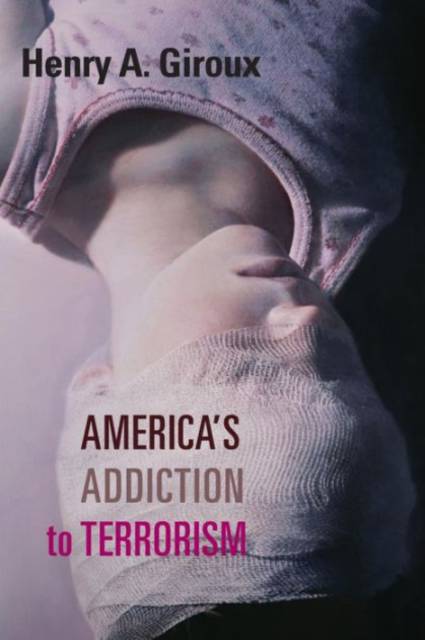
Bedankt voor het vertrouwen het afgelopen jaar! Om jou te bedanken bieden we GRATIS verzending (in België) aan op alles gedurende de hele maand januari.
- Afhalen na 1 uur in een winkel met voorraad
- In januari gratis thuislevering in België
- Ruim aanbod met 7 miljoen producten
Bedankt voor het vertrouwen het afgelopen jaar! Om jou te bedanken bieden we GRATIS verzending (in België) aan op alles gedurende de hele maand januari.
- Afhalen na 1 uur in een winkel met voorraad
- In januari gratis thuislevering in België
- Ruim aanbod met 7 miljoen producten
Zoeken
Omschrijving
In the United States today, the term "terrorism" conjures up images of dangerous, outside threats: religious extremists and suicide bombers in particular. Harder to see but all the more pervasive is the terrorism perpetuated by the United States itself, whether through military force overseas or woven into the very fabric of society at home. Henry Giroux, in this passionate and incisive book, turns the conventional wisdom on terrorism upside down, demonstrating how fear and lawlessness have become organizing principles of life in the United States, and violence an acceptable form of social mediation. He addresses the most pressing issues of the moment, from officially sanctioned torture to militarized police forces to austerity politics. Giroux also examines the ongoing degradation of the education system and how young people in particular suffer its more nefarious outcomes. Against this grim picture, Giroux posits a politics of hope and a commitment to accurate-and radical-historical memory. He draws on a long, distinguished career developing the tenets of critical pedagogy to propose a cure for our addiction to terrorism: a kind of "public pedagogy" that challenges the poisoned narratives of "America's dis-imagination machine."
Specificaties
Betrokkenen
- Auteur(s):
- Uitgeverij:
Inhoud
- Aantal bladzijden:
- 192
- Taal:
- Engels
Eigenschappen
- Productcode (EAN):
- 9781583675700
- Verschijningsdatum:
- 22/12/2015
- Uitvoering:
- Paperback
- Formaat:
- Trade paperback (VS)
- Afmetingen:
- 150 mm x 208 mm
- Gewicht:
- 362 g

Alleen bij Standaard Boekhandel
+ 64 punten op je klantenkaart van Standaard Boekhandel
Beoordelingen
We publiceren alleen reviews die voldoen aan de voorwaarden voor reviews. Bekijk onze voorwaarden voor reviews.









